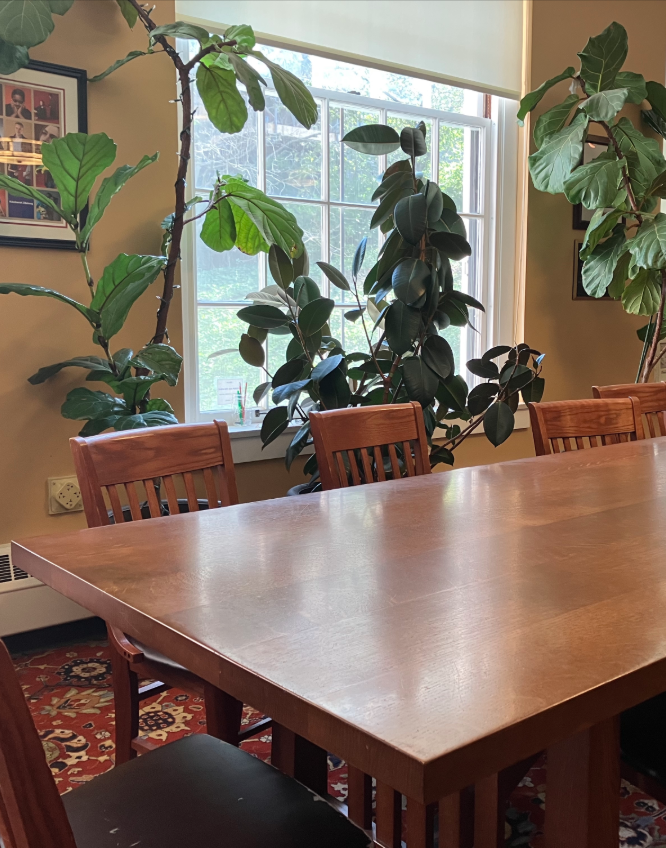By CLARA CHIU

Photo courtesy of author.
Amherst, Massachusetts
I. Tablecloth Winter
We are holding the edges of the fabric,
throwing the center into the air.
& even in dusk this cloth
billowing over our heads
makes a souvenir of home:
mother & child in snowglobe.
Yet we are warm here, beneath
this dome, & what light slips through
drapes the dining room white.
There’s a beauty to this moment,
a disruption. Now everything
equal, we’re shaken eye to eye & I
can taste her old wonder surfacing.
Briefly bold, she finds permission
under her tongue & begins to remember.
That first snow day, frigid crust unbroken
& the wind on her back whispering now, now.
But quicker than it’s written,
the cloth winces from gravity & falls –
it settles something ghostly
between her arms.
II. Personal Space
Tell me, father, of the man who peddled placemats. Who knocked on your door a weary traveler and stepped inside a salesman. You were younger than I am now, and you could only stare at this man who dripped sweat and persuasion onto your floorboards. He seated himself at the dining table, and drawing from the cold bottle you’d offered him, began to preach. The problem with this world, son, he said, is that there aren’t enough corners. His hands inched toward a sack he’d set down. People keep cutting them, he continued, and with this proclamation unfurled on the table a rectangle of woven vinyl. But a placemat, you see, is a thing of decorum. A four-cornered system to keep people in their proper places. After all, an orderly world begins in the home. He then began to list his inventory of placemats: all the varieties and textures of fine dining. I have linen ones from France, and others of rattan and cork. Now please, you must try the braided jute. And as he said this, as you still do each evening, he pulled a chair from the table and patted the cushion. Sit down, sit down. I have laid out a corner of the world for you.
III. Whetting
All that is to say, what was eaten
is tomorrow’s course.
I’m dull in this yellow room, dressing the table with
the plates I scraped yesterday. Patterning the tablecloth
with white zeroes and one
edge of many circles. Around I go – this binary –
and the privacy of the ritual nearly renders it novel.
But before me in the carpet is my mother’s worn path
and I smell her pacing; wonder growing stale by the lap.
Suddenly tomorrow’s caving in like inheritance,
and I see in a timelapse
the place settings fill and hollow in sharp tides,
the drapes vacant and settling like a bride,
and the humidity of what’s there and not thickening the room.
– Oh, how it reverberates.
So vacant I must empty my arms of the dishes –
My hands are stopping my ears, the floor stopping
the plates, and still I can hear them clanging away in porcelain
composition.
Maybe this is my stomach, rumbling. Maybe if I stuff it
it’ll quell. And so I’m putting the plates back
together. Putting the pieces back on the loud table.
All that is to say, I’m so famished
I’ll scrape me a plate full
I’ll scrape it full –
IV. The Return
From the doorway,
I watch them setting the table.
She lays out the scalloped napkins;
he, the pot roast and the silence –
it’s seared thickly, each slice,
and when he slides her the best cut,
he surrenders himself over and over
to all those ways he learned to care.
How clear, now. The language they
are inhabiting, again and for the first time.
They lay down the forks and knives –
I must turn away. A shiver touches me.
It’s forgiveness, and all its interiors.
Clara Chiu is a junior at Amherst College and an editorial assistant at The Common.



